Dell grows enterprise storage business with $1.15B 3PAR acquisition

Dell on Monday announced it will be acquiring virtualized storage company 3PAR for $1.5 billion to grow its storage portfolio and complement its PowerVault, EqualLogic, and EMC-licensed solutions.
3PAR's claim to fame is its unique approach to storage architecture. The company provides what it claims is the hypervisor of storage utilization, or "the only virtualized storage platform built to overcome the limitations of traditional monolithic and modular arrays." 3PAR's technology will round out Dell's offerings for enterprise storage to include directly attached storage or clustered storage area network solutions.
LG-Ericsson joint venture launches in the U.S.
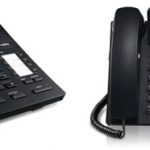
The enterprise telecommunications joint venture formerly known as Edgecore Networks today officially launched in the United States under the new name, LG-Ericsson USA. The joint venture is made up of South Korean electronics maker LG, Swedish telecommunications company Ericsson, and Taiwanese networking solutions provider Accton Technology Corp.
The rebranding is a part of Ericsson's increased stake in its joint ventures with LG, after it bought Nortel's portion of LG-Nortel for $242 million in cash less than two months ago. Nortel agreed to sell its CDMA business to Ericsson the year before in a massive restructuring effort by the Canadian telecommunications company.
This is big: Oracle claims Android violates its Java patents, sues Google

Enterprise computer company Oracle has filed a lawsuit against Google for patent and copyright infringement related to Java and Android.
"In developing Android, Google knowingly, directly and repeatedly infringed Oracle's Java-related intellectual property. This lawsuit seeks appropriate remedies for their infringement," Oracle spokesperson Karen Tillman said in a brief statement Thursday evening.
Google officially launches Chrome-to-Phone extension, broadens Android voice search.

Google today announced the availability of two features exclusive to Android 2.2 (FroYo): Voice Actions and Chrome-to-Phone.
Voice Actions is an app that vastly expands Android's speech-to-text functionality, and Chrome to Phone is a Chrome extension and Android app pairing that lets the user forward content in Chrome to his Android device. This was first shown off at Google I/O last May as a part of the 10 improvements in Android 2.2 and has been available on Google Code since July.
CBS Interactive launches the Foursquare of TV viewing, TV.com Relay

Thursday, CBS interactive launched a mobile Web app called TV.com Relay, which lets users "check in" to the TV shows they happen to be watching and earn badges for their activities just like popular location-based games Foursquare and Gowalla.
Unlike those location based services, though, you don't actually have to go anywhere to use Relay.
Mozilla Firefox 4 beta 3 released, adds multi-touch enhancements in Windows 7

Mozilla has made the third beta of Firefox 4 available for download and testing this week, and the popular browser has received two major updates: one is very visible, one is not.
The less outwardly visible improvement in Firefox 4 beta 3 is the improved JavaScript engine, which now supports 64-bit "Fat Values." This promises more efficient code execution for complex graphical and animated content, among other things.
Sprint prices and dates Samsung Epic 4G, decides to offer reservations
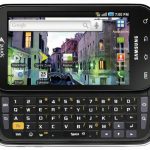
Sprint's second WiMAX phone, the Samsung Epic 4G will be available on August 31 in Sprint, Radio Shack, Best Buy and Wal-Mart stores for $249.99, the wireless operator announced Thursday.
Beginning August 13, customers will be able to reserve an Epic 4G on a special page on Sprint's website to guarantee they will receive one on launch day. Sprint's first 4G phone, the HTC EVO 4G, was sold out for weeks after the device launched, and according to Sprint, this will be the first time it has ever done this sort of reservation proccess.
Google launches Chrome 6 Beta

Wednesday, Google officially announced the release of Chrome 6 beta, the most recent of the search company's popular desktop browser.
The user interface has been tweaked and simplified even further in this version. All of the options are under a single menu, and the navigation buttons aren't so much buttons any more as icons in the browser's navigation bar. These changes were revealed in the June developer preview of Chrome 6.
Networks expand 6x faster with mobile broadband demand, says Ericsson

Wireless telecommunications company Ericsson announced on Wednesday that it has delivered its two millionth radio base station. The accomplishment is significant because it illustrates the speed at which wireless networks are growing thanks to the high demand for mobile broadband. Ericsson says it took just three years to ship the second million radios, when it took more than 20 to ship the first million.
Ericsson traces that first million back to the early days of modern cellular telephones, when it built the first GSM network with Radiolinja (now Elisa) in Finland in 1991. It wasn't until nearly a decade later that the company's first GSM base station for data was launched in February 2000.
Google becomes ad seller for DirecTV

DirecTV Wednesday announced that Google will become the advertising sales representative for "a broad selection of advertising inventory on several cable networks" that the satellite TV company carries. It is the second major satellite partnership Google TV Ads has established.
Google's TV Ads branch of AdWords has existed for more than three years, giving businesses the opportunity to purchase blocks of airtime for advertising across a handful of stations on Dish Network and through several regional cable carriers. In 2009, NBC Universal cable networks CNBC, Sci-Fi Network, MSNBC, Oxygen, Sleuth, and Chiller joined the program; and now nearly 100 channels run ads sold by Google.
KDE updates Plasma Workspaces for Desktop and Netbook
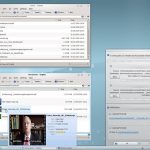
KDE released a new version of Plasma Workspaces for Desktop and Netbook on Tuesday, the environment serves as the default workspace for more than twenty Linux distributions, including Mandriva Linux, openSUSE, and Slackware.
This version has received a handful of changes both in appearance and usability. The notification bar has been cleaned up and reworked, and the window manager KWin can now arrange windows on screen without overlapping. The Zooming User Interface (ZUI) from previous versions has been replaced by an "Activity Manager" which was integrated into KDE from the Nepomuk Semantic Desktop project.
Plastic Logic axes Que e-reader, moves on
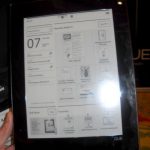
E-reader company Plastic Logic today officially announced the cancellation of the Que e-reader product it showed off at CES 2010 in favor of working on a more up-to-date second version.
The company debuted its E-reader concept in 2006, and showed off the first working prototypes in 2008. Finally, by the time the Consumer Electronics Show rolled around in 2010, the company had a product that looked ready to go: an 8.5" x 11" touchscreen e-paper reader complete with AT&T 3G wireless and several content partnerships.
Android growth spurs new mobile malware, SMS Trojan discovered

Security researchers at Kaspersky Lab announced the first malware for the Android operating system to be classified as a Trojan-SMS, the most widespread type of malware on mobile phones.
The malware is disguised as a media player application with the standard Android .APK file extension. When the 13KB file is installed, the mobile device will start to send SMS messages to premium numbers which incur charges on the user's account.
Hollywood studio venture Epix brings new content to Netflix Instant on Sept. 1

September first, Netflix instant streaming will get a ton of new content from Viacom, Paramount Pictures, MGM Studios, United Artists, and Lionsgate Films thanks to a deal between Netflix and Studio 3 Partners' joint venture Epix, the companies announced Tuesday.
According to the deal, Netflix will get Epix new releases 90 days after they're made available to pay TV. When Epix was announced in late 2008, President Mark Greenberg said it would launch its on-demand with 15,000 movies and television shows, along with its companion for-pay movie channel.
How does the new Motorola Droid 2 differ from the original?
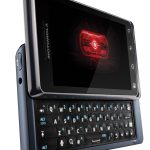
Motorola and Verizon Tuesday announced the Droid 2, the sequel to the popular Droid, which launched in November 2009. While the device has received a handful of important improvements, it remains nearly identical to its predecessor in every other way.
The Motorola Droid was arguably the first smash hit Android device, capitalizing on the popularity of Verizon's network and pointing out the shortcomings of both AT&T's network and the Apple iPhone. So, Motorola appears to be giving the Droid the same treatment it gave the Razr for many years, by sticking with what people know, and improving in areas that matter.
Tim's Bio
Tim Conneally was born into dumpster tech. His father was an ARPANET research pioneer and equipped his kids with discarded tech gear, second-hand musical instruments, and government issue foreign language instruction tapes. After years of building Frankenstein computers from rubbish and playing raucous music in clubs across the country (and briefly on MTV) Tim grew into an adult with deep, twisted roots and an eye on the future. He most passionately covers mobile technology, user interfaces and applications, the science and policy of the wireless world, and watching different technologies shrink and converge.
© 1998-2025 BetaNews, Inc. All Rights Reserved. Privacy Policy - Cookie Policy.
